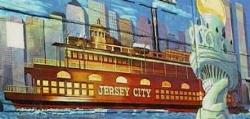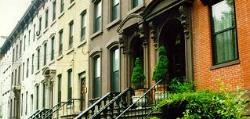 |  |  |
|
| ||
 |  |  |
 |  |  |
|
| ||
 |  |  |

 |
 |

Originally published in 1939
Some of this information may no longer be current and in that case is presented for historical interest only.
Edited by GET NJ, COPYRIGHT 2002
| 1702 | Proprietors of East and West Jersey surrender civil government to English Crown. East and West Jersey are merged. Lord Cornbury, Governor of New York, is separately commissioned as Governor of New Jersey also. |
| 1737 | Population 47,402. |
| 1738 | New Jersey separated from New York; Lewis Morris appointed Governor. |
| 1739 | Weekly mail route, by post boys, is established between New York and Philadelphia. |
| 1740 | First glass factory built by Caspar Wistar near Salem. Rev. George Whitefield preaches at New Brunswick and Elizabethtown. |
| 1743 | First pig iron made in New Jersey-from a furnace at Oxford, Warren County. |
| 1745 | Population 61,383. |
| 1746 | May 21. Gov. Lewis Morris dies at Kingsbury, near Trenton. College of New Jersey (Princeton University) chartered. |
| 1750 | Trenton Public Library is founded. |
| 1753 | First steam engine imported from England was delivered at Schuyler copper mine, in New Barbadoes Neck, now North Arlington, N. J., September 25. (First operated, March 12, 1755.) |
| 1758 | Brotherton, first Indian reservation in America, created at Indian
Mills – 3,000 acres in Burlington County. October 18. At Easton, Pennsylvania, conference between Governors and Indian chiefs, Gov. Francis Bernard acquires from New Jersey tribes, for £1,000, a release of all Indian titles to New Jersey land. |
| 1763 | Sandy Hook Lighthouse (now oldest in America) erected. William Franklin becomes Governor. |
| 1766 | New Jersey Medical Society incorporated at New Brunswick. Queen's College (Rutgers University) chartered. |
| 1774 | July 21. First Provincial Congress assembles at New Brunswick. Nov. 22. Cargo of tea burned at Greenwich. |
| 1775 | May 23. Provincial Congress meets at Trenton. November-December. Provincial Assembly holds last session. |
| 1776 | William Franklin, last Crown Governor of New Jersey, arrested. July 2. Provincial Congress adopts State Constitution, proclaim-ing independence. August 2. New Jersey's delegates to Continental Congress sign the national Declaration of Independence, adopted July 4. August 31. First General Assembly at Princeton elects William Livingston first Governor. November. General Washington skillfully retreats across New Jersey, after abandonment of Fort Lee. December 8. Washington crosses Delaware River into Pennsylvania. December 25-26. Washington recrosses Delaware, and defeats enemy forces at Trenton. |
| 1777 | January 3. Battle of Princeton; army retires to winter quarters at
Morristown. Washington and army quarter at Camp Middlebrook, Somerset County. June. General Howe evacuates New Jersey. Goes by water to Delaware River. Occupies Philadelphia (September). December 15. Isaac Collins publishes the New Jersey Gazette Battle of Red Bank. |
| 1778 | June 28. Battle of Monmouth. |
| 1779 | Washington and army winter at Morristown (1779-80). American forces, under Major Henry Lee, surprise British at Paulus Hook. New Jersey Journal published at Chatham by Shepard Kollock to aid Revolutionists. |
| 1783 | June 30. Princeton becomes National Capital. Continental Congress holds session there. Washington writes farewell address to army at Rocky Hill. |
| 1784 | New Brunswick incorporated as a city. |
| 1787 | Legislature gives 15-year steamboat monopoly to John Fitch, inventor. December 18. New Jersey becomes third State to ratify United States Constitution. |
| 1790 | Population 184,139. Trenton chosen as State Capital. |
| 1791 | Alexander Hamilton incorporates Society for Establishing Useful Manufactures and founds Paterson. |
| 1794 | First Paterson factory – calico prints – goes into operation. Moses Combs, Newark founder of shoe industry, opens first free vocational school. |
|
Return To |
|

|